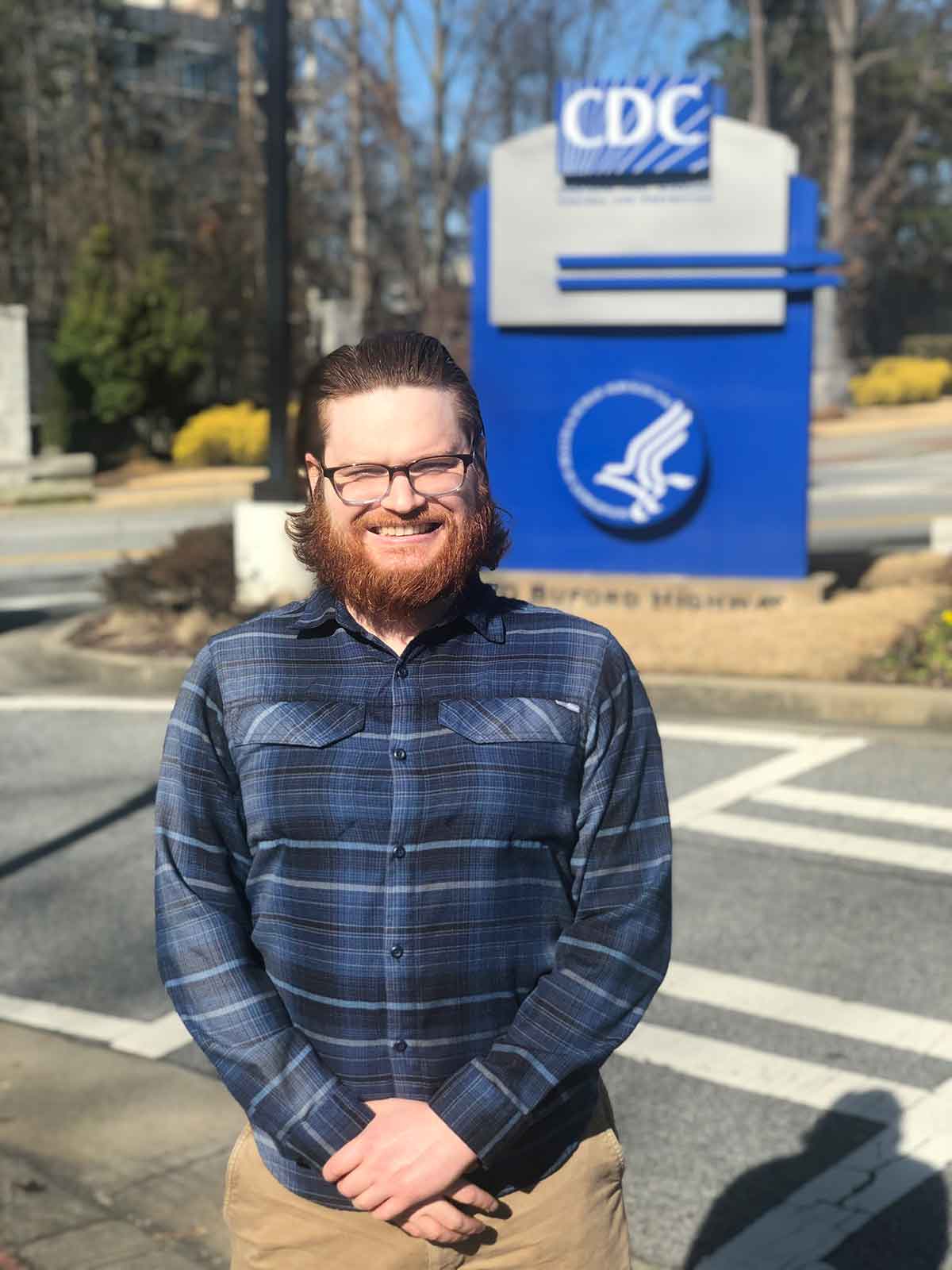CDC fellow broadens public health experience through viral hepatitis research
Meet Ryan Augustine
Ryan Augustine wasn’t always interested in the medical field. Though he had a knack for science and math, the world of health care simply didn’t fall within his interest zone. In fact, it wasn’t until he contracted pneumonia in eighth grade that he gave the idea of healthcare as a profession any thought at all.

During his fellowship with the Division of Viral Hepatitis at the Centers for Disease Control and Prevention, Ryan Augustine conducted research on hepatitis A, B and C in support of public health projects. (Credit: Lindsay Fried)
While sick, Augustine received such excellent care from his pediatrician that he realized the importance of the medical field to society. The impact his doctor made lingered with Augustine as he continued his education. During college, he explored the options of medical school and clinical work. After careful consideration, Augustine decided to pursue a career in public health, where he felt his contributions would be the most impactful.
Recently, Augustine gained valuable experience in the public health field through the Oak Ridge Institute for Science and Education (ORISE) Fellowship Program at the Centers for Disease Control and Prevention (CDC).
The ORISE fellowship is one of many CDC Research Participation Programs, which are educational and training programs designed to provide students, recent graduates and university faculty opportunities to participate in project-specific CDC research, current public health research and developmental activities.
Augustine first heard about the program from peers while working on his Master of Public Health degree at the University of Georgia, and he immediately knew it was the perfect opportunity. “The combination of real-world experience while doing research with some of the top minds in the industry was hard to pass up,” he said. After receiving his degree in 2016, Augustine applied and was accepted into the fellowship program.
For his appointment, Augustine was placed with the Division of Viral Hepatitis (DVH), a division housed within CDC’s larger National Center for HIV/AIDS, Viral Hepatitis, STD and TB Prevention (NCCHSTP). Under the mentorship of Eyasu Teshale, MD, Augustine supported research and projects for both the Hepatitis A Outbreak Response Team and the Epidemiology and Research Team. Most of his time was spent collaborating with DVH teams on different viral hepatitis projects.
A typical day for Augustine involved supporting CDC DVH Lead Medical Officers with state health department laboratory submission of specimens for hepatitis A testing. This support entailed updating data regarding outbreak case numbers and approving sample submissions.
One of Augustine’s larger projects involved researching and estimating the cost of establishing comprehensive syringe service programs (SSPs) in the United States. These programs provide sterile needles and syringes to persons who inject drugs and offer safe needle collection and disposal. Additional components of comprehensive SSPs include wound care, overdose prevention, substance use disorder treatment referrals, mental health referrals and hepatitis A and B vaccinations. Alongside other ORISE fellows, Augustine calculated the total costs of a comprehensive SSP based on location, size and services offered.
The findings from this published evaluation will inform policymakers and others seeking to fund and establish comprehensive SSPs that can help combat the spread of hepatitis B and C fueled by injection drug use. Augustine’s research is particularly impactful, because it emphasizes the benefits of SSPs and the rising need for hepatitis programs targeted to the people most affected.
“With the recent increase in opioid and injection-drug use and the associated increase in hepatitis C incidence in the United States, a solid understanding of the costs of SSPs could help federal and state program planners and appropriators properly plan for additional SSPs in their area and according to their needs,” he explained. “Millions of people live with these infections. It makes me proud to be associated with an organization that works to tackle these problems and helps those afflicted.”
Through his fellowship, Augustine gained valuable public health experience. He reflected positively on his time at CDC, crediting the Research Participation Program for his professional development.
“Learning from the public health experts at the Division of Viral Hepatitis has granted me the space and challenges needed to grow as an epidemiologist,” he said. “I’ve learned how to communicate and collaborate with stakeholders, approach problems critically and participate in a multi-year outbreak response.”
When his fellowship with CDC ends in 2021, Augustine hopes to continue at CDC to conduct epidemiology research.
The CDC Research Participation Program is managed by the Oak Ridge Institute for Science and Education (ORISE) under an agreement between CDC and the U.S. Department of Energy (DOE). ORISE is managed for DOE by ORAU.

